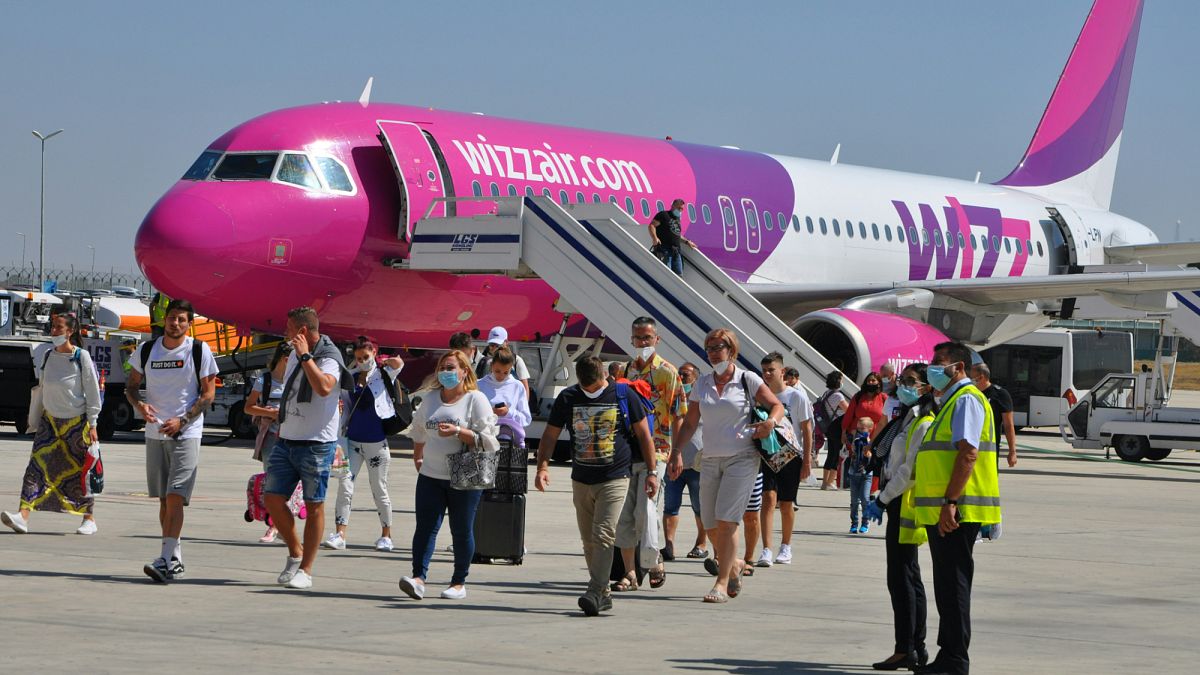Last month, a group of consumer organisations asked the European Commission to conduct an inquiry into what they alleged are unfair hand luggage charges imposed by budget airlines.
Fees for carry-on bags can be particularly frustrating when it isn’t immediately made clear that it’s not included in the initial ticket price.
The organisations argued that this makes it difficult for consumers to compare prices or make informed economic decisions.
Hand luggage surcharges are not the only hidden extra travellers have to watch out for, however.
Recently, financial news site Tradingpedia delved into the myriad ancillary fees and taxes charged by European airlines on top of the basic air fare. Here are the airlines that charge the most.
This European airline charges the highest hidden fees
With airfares projected to rise by 2.8 per cent this year, flying abroad is set to become even more expensive.
While low-cost carriers may appear to offer relief, the reality is often more complex, the new report shows.
These surcharges, ranging from seat selection to name-change fees, are not entirely hidden – they are disclosed during the booking process, screen by screen.
But they are rarely included in headline prices or promotional adverts for fares, meaning the true cost of a flight only becomes apparent toward the end of the purchase journey.
The report found that Wizz Air tops the list with airlines’ not-so-obvious fees for a flight, charging a total of £207.93 (€245) for several optional, yet sometimes unavoidable fees.
These include €100 for checked baggage, €10 for online booking, and €21.50 for airport or online check-in. That said, it is one of the few in the ranking that doesn’t charge extra for carry-on luggage.
Ryanair ranks second, charging its passengers £198.58 (€234) on top of the air fare for the same services. It also charges €25 for hand luggage.
EasyJet has the third-highest fees at £180.48 (€213), followed by Vueling with £151.20 (€179). Vueling has the second-highest checked baggage fee in the ranking, at €85.
Euronews has reached out to all three airlines about their ancillary costs.
British Airways appears to have the lowest additional fees at only £64 (€75). Norwegian has the second-lowest fees at £71.53 (€84) in total, while Jet2 charges £91.50 (€107) on average.
Rescue fees, infant charges and group bookings
While some of the extra fees and surcharges are avoidable, such as seat selection, in some cases, passengers have no choice but to purchase these “optional” services.
One of these is the group administration fee – it is €10.50 if you fly with Wizz Air, but with easyJet, group bookings are charged €25 per person.
Ryanair also has a card payment fee, so you may be charged a percentage of the total transaction if you pay via a credit or debit card.
When you fly with an infant (under the age of 2 at the time of the flight), you do not need to purchase a ticket, but there is a mandatory fee.
With Wizz Air, it is €32, while with easyJet it is €31, and Jet2 charges you only €23.50.
Norwegian, on the other hand, offers infant tickets, which cost 10 per cent of the adult fare plus any airport taxes.
Another fee that seems questionably optional is the so-called rescue fee charged by all airlines when the passenger misses the flight.
If you arrive at the airport right before or shortly after takeoff, you can pay the rescue fee, and you will be given a seat on the next flight. Ryanair charges €100 per person, easyJet – €130, while Vueling has a rescue fee starting from €105 for international flights.
Wizz Air’s rescue fee is only €80, and Jet2’s rescue fee is the cheapest at €32. The other airlines also charge a fee, but do not clearly state how much it is on their websites. In some cases, the passenger is required to cancel the booking and rebook another flight at current prices.
When all these undisclosed fees are added to the airfare, it often makes low-cost airlines as expensive as full-service carriers (as companies that include ancillary service fees in their ticket prices are known).
As the team at Tradingpedia concludes, “the findings shed light on whether budget airlines are genuinely cost-effective or merely perceived as such.”

